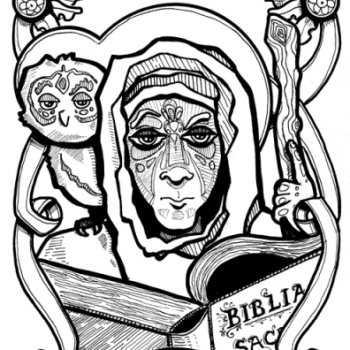 Addiction recovery can be a deeply spiritual process. Whether it is addiction to alcohol, narcotics, gambling, food, sex, codependency or debt (the list can get long), accepting help from your Higher Power as you refrain from the addictive behavior can sometimes make the difference between life and death.
Addiction recovery can be a deeply spiritual process. Whether it is addiction to alcohol, narcotics, gambling, food, sex, codependency or debt (the list can get long), accepting help from your Higher Power as you refrain from the addictive behavior can sometimes make the difference between life and death.
Spiritual directors can be an important resource to an addict who wants a deeper exploration of the spiritual path they are on. In Gerald May’s classic book Addiction and Grace , May writes “addiction exists wherever persons are internally compelled to give energy to things that are not their true desires (p.14).” Spiritual directors are trained to help people focus on and nurture their true desires.
May’s definition could fit for all of us—whether we admit to our addictions or not. A spiritual director does not have to be in recovery to assist someone who is. One of the beauties of spiritual direction is that the director doesn’t need to have experienced the same life situations as the directee—the process is so non-directive that it can be helpful for just about anyone. But there are many spiritual directors who are in recovery and want to work with others in recovery. Their life experience serves them well as a comforting backdrop for the directee. Perhaps they understand addiction in ways that would be helpful for the addict.*
There are many ways to be in recovery. It is important to note that not all persons in recovery are participating in the well-known Alcoholic Anonymous Twelve Step program, which is adapted for many different kinds of addictions. However, it is helpful for all spiritual directors to have a passing familiarity with AA’s 12-steps because as any church member knows there are probably more people coming to your church during the week for 12-step meetings than are attending your Sunday worship on any given Sunday! And even if the person coming to direction is in a different kind of recovery program, they will probably be acquainted with 12-step language.
In fact, language about matters of the spirit may be the most noticeable difference between working with someone in recovery and someone who is not. The directee may refer to God or may use Higher Power language. They may revere the Big Book the way some Christians revere the Bible. Some will come from a religious background but others will have discovered spirituality solely through their 12-step meetings and will be searching for an additional spiritual tradition or community to connect with. Many of the people in 12-step programs will come to spiritual direction wrestling with what it means to work “the 11th step,” which states that we will “seek through prayer and meditation to improve our conscious contact with God, as we understand God, praying only for knowledge of God’s will for us and the power to carry it out.”
For some in recovery, the identity as an alcoholic or addict will be highly important. For others, it may be presented in direction as just one aspect of their life’s journey. It may be a large part of the content the directee brings, or it may only come up now and then. For some in recovery, issues of shame, guilt and forgiveness will be paramount and spiritual direction can be a safe place to express these feelings and move forward.
Some open-ended questions for the spiritual director to consider using when working with a person in recovery:
- How have you experienced God in your recovery process?
- How do you pray best?
- (If they identify with the 12-steps) What step are you currently working on?
- (If they use 11th step language) How do you seek to know God’s will?
- How did you understand God when you were actively using? Who is God for you now?
- Where do you find spiritual support in community?
The Alcoholics Anonymous Big Book states “The spiritual life is not a theory. We have to live it.” The question for all of us is how best to do that. Spiritual direction is about living out our faith, our questions and our values. I hope more and more people in recovery will discover spiritual direction as a resource for accompaniment along the way.
*One spiritual director who is specializing in working with persons in recovery is Rev. Elizabeth Lyman of Tucson, AZ. Her website is www.elizabethlyman.org.
If you are interested in learning more about spiritual direction or entering spiritual direction with me, please contact me at teresa@teresablythe.net or visit www.teresablythe.net. Also visit my website for the Phoenix Center for Spiritual Direction.
Photo credit: rachelakelso via Foter.com / CC BY-NC-SA

















